Frequently Asked Questions
Charitable Gifting from IRAs
Click on any question below. For more information on gifting from your IRA, please contact This email address is being protected from spambots. You need JavaScript enabled to view it., Director of Development.
IRAs are typically held by a financial advisor or trust company. These custodians can provide a form that could be used to transfer the IRA directly to charity.
Under current law, gifts from IRAs may not benefit donor advised funds and supporting organizations. In addition, split interest gifts, such as charitable annuities, charitable lead trusts and charitable remainder trusts, do not qualify.
Gifts from IRAs can be made to all of the following options at the Community Foundation:
- The Community Foundation’s general operations, or the Community Foundation’s Permanent Fund for Northern Virginia.
- Any field of interest fund from which the Community Foundation makes grants to the community, including:
- The Community Investment Funds
- The Environment Fund
- The Ross-Roberts Fund for the Arts
- The Innovation Fund
- Any Giving Circle, including:
- The Business Women’s Giving Circle
- The Loudoun Impact Fund
- Any designated fund, which are funds that have been established by donors to benefit certain predefined and designated nonprofits only.
No. A charitable gift from an IRA is not itemized and therefore donors may not take an income tax deduction for them. But the good news here is that the amount of the IRA withdrawal that is used for the charitable gift is not counted towards a donor’s adjusted gross income or AGI. AGI is used to determine whether certain tax provisions apply, such as the 3.8% surtax on net investment income, to determine payments for some Medicare premiums, or to determine taxes on Social Security payments. Moreover, AGI is used to determine whether itemized deductions receive are reduced or receive a ‘haircut’ once certain thresholds are met. By excluding the amount of the IRA withdrawal that is used for the charitable gift from AGI, a donor is likely to see an overall reduction in income tax liability and may minimize any reduction in their itemized deductions
Because the amount that the donor is able to exclude from income is limited to $100,000, any amount over $100,000 that is gifted from the IRA would be recognized as income by the donor. Within a married couple, each person can transfer $100,000 from his or her account.
Donors who are 70½ years of age or older need to start taking annual required minimum distributions from their IRA accounts, incurring tax liability on income they often do not need and would prefer to avoid. The current law permits individuals to transfer up to $100,000 per year from their IRAs to a qualified charity, all of which can count towards the required minimum distribution a donor would otherwise be required to take with none of the concomitant income tax liability attaching thereto.
Many of today’s retirees have amassed considerable wealth in their IRAs, more wealth, in fact, than they need for daily living or long-term care. And for those with substantial estates, much of their IRA wealth will go to estate taxes and income taxes of non-spousal beneficiaries, leaving some heirs with less than 50% of the IRA assets that are left to them. For these reasons, many of today’s IRA holders should consider using their IRAs as a current source of charitable gifting.

 Questions?
Questions?




